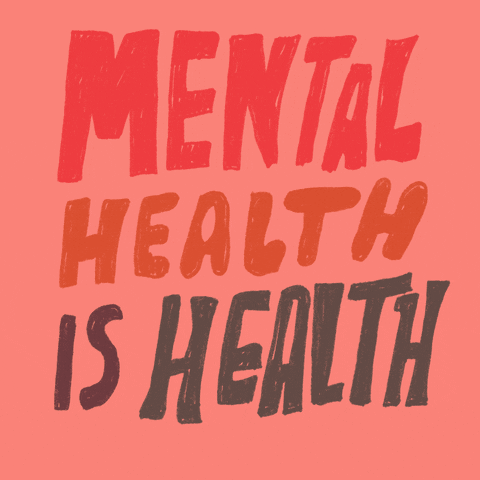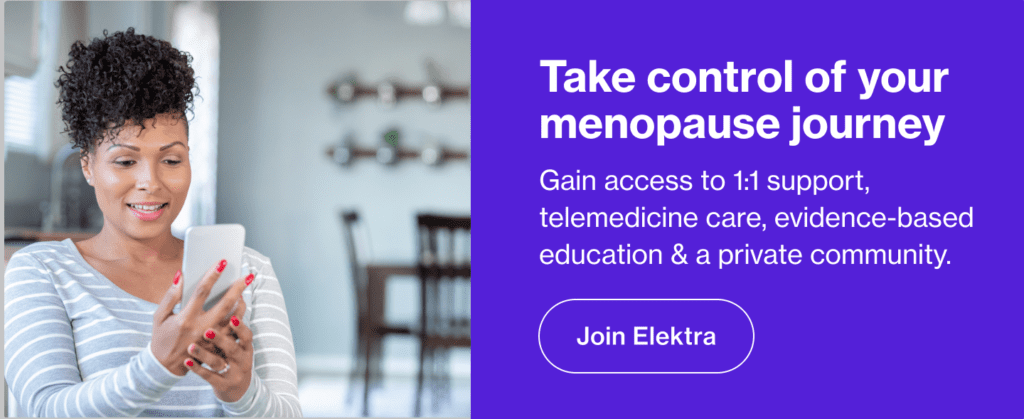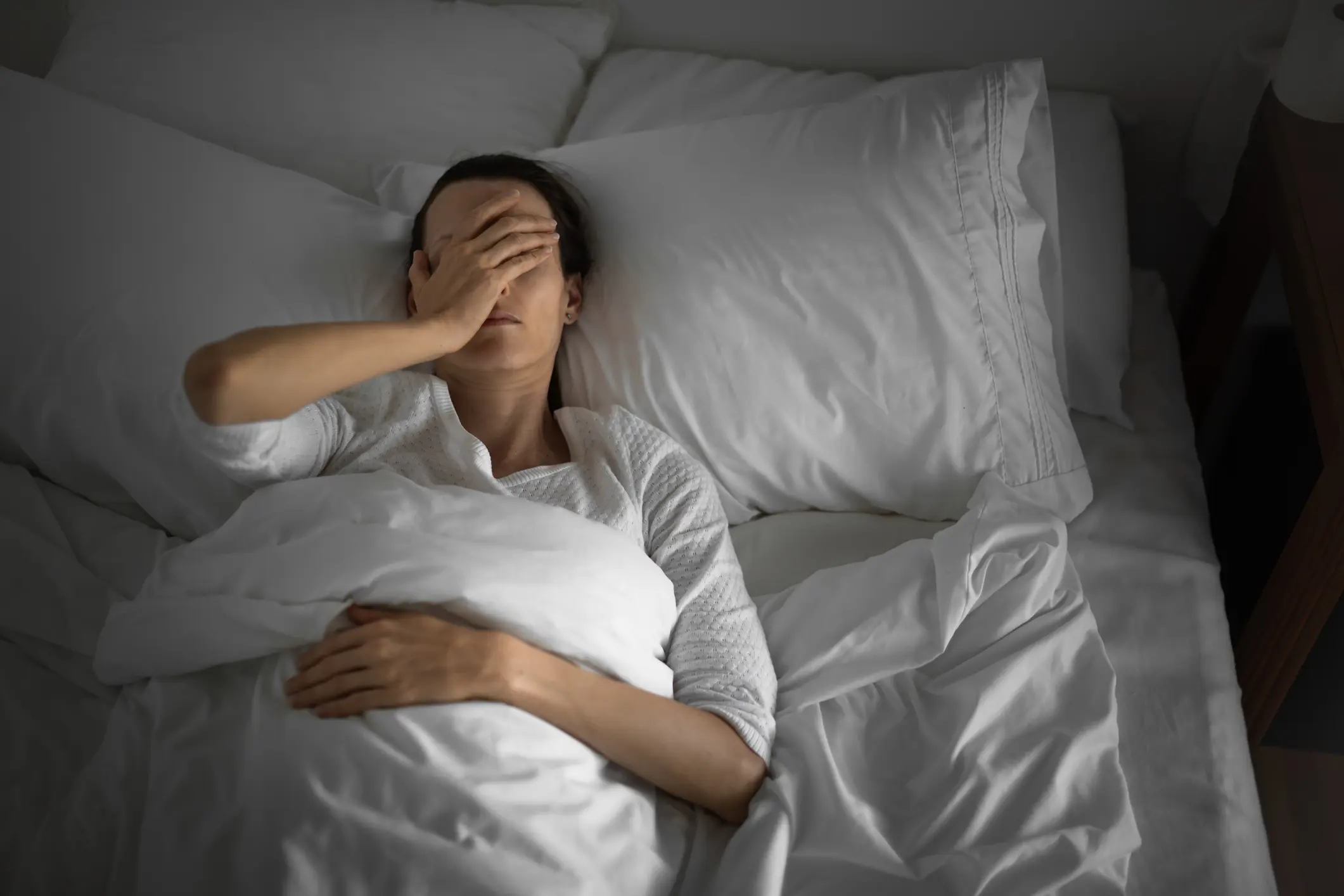
Published on May 01, 2023
Last modified on Apr 30, 2023
Overcoming Menopause Depression: Resources, Tools & Tips
4 min read
While most are familiar with the physical symptoms of menopause (think hot flashes/night sweats, sleep disturbances, mood changes, joint pain), there are mental health implications as well that should not be discounted.
In fact, research shows that an estimated 38% of women in late perimenopause develop symptoms of depression, with certain women at a higher risk due to history of depression/postpartum depression or oopherectomies (removal of the ovaries).
Timing is important here, because it’s women between the ages of 40-55 that are more likely to report depressive symptoms, suggesting that the highest risk for new-onset depression is actually during the transition INTO menopause, not during postmenopause.
Like many other symptoms of menopause, depression can be associated with fluctuating hormone levels, specifically estrogen, progesterone, and serotonin. These same hormonal shifts also help explain why mood swings pop up as PMS symptoms, too.
READ MORE: Can Menopause Cause Depression? Your FAQs, Answered.
Below, we outline evidence-backed resources, tools, and tips to help you overcome menopause depression.
Hormone Replacement Therapy (HRT)
Recent studies have found that hormone therapy is a viable treatment option for women with elevated depressive symptoms who have been screened for common risk factors.
- Oral contraceptive pills are typically prescribed for early-late perimenopause
- Hormone replacement therapy (HRT) is prescribed for late perimenopause-menopause
- Estrogen therapy alone is not approved to treat perimenopausal depression; however, there is evidence that it has antidepressant effects, particularly for those suffering from vasomotor symptoms and side effects (e.g., hot flashes/flushes and night sweats).
Important: HRT in any form has not been found to have beneficial effects on mental health and other mood symptoms for postmenopausal women.
READ MORE: Hormone Therapy For Depression…Does It Help Or Hurt?
Non-Hormonal Treatment
SSRIs and SNRIs remain the first line of pharmacologic defense for anxiety and depression in peri- and menopausal women. SSRIs are selective serotonin reuptake inhibitors and SNRIs are serotonin and norepinephrine reuptake inhibitors — total tongue-twisters! These neurotransmitters are antidepressants that work by regulating serotonin (the “happy hormone” that controls mood) and norepinephrine (plays a key role in the body’s “fight-or-flight” response to stress). It should be noted that common side effects include weight gain and low libido.
There are many SSRIs on the market, like sertraline/Zoloft, fluoxetine/Prozac, Escitalopram/Lexapro, and Venlafaxine/Effexor.
Psychotherapy
There are two types of psychotherapy recommended for menopause-related depression: interpersonal therapy and cognitive behavioral therapy (CBT) — both of which are often used in conjunction with medication. If you are interested in seeing a therapist, be sure to ask about their particular approach and practice.
Cognitive Behavioral Therapy (CBT)
CBT involves working with a coach or therapist to recognize and change beliefs — including negative thoughts and worries. That’s the “cognitive” part. And then there’s the “behavioral” part, which helps you develop better habits and mindset.
Interpersonal therapy
Interpersonal therapy focuses on understanding how human relationships may contribute to or relieve symptoms of depression.
A note about therapy: Societal stigma around mental health issues is strong, and many people are ashamed to see a therapist for help with depression (or anything). Elektra Health believes in smashing all the taboos around our health — emotional and mental health included — and we wholeheartedly embrace the evidence-based science behind therapy and counseling.
If you’re experiencing depression, anxiety, or other mood changes that interfere with your life, we encourage you to talk to a mental health professional. Here are some resources to help you find one:
- Psychologist Locator from the American Psychological Association
- Database from the National Register of Health Service Psychologists
Lifestyle changes
- Nutrition & diet: There is a strong positive correlation between a plant-based Mediterranean diet and a lower risk of anxiety and depression. The diet is low in saturated fats and animal proteins, rich in antioxidants and fiber, and loaded with B vitamins (which have been clinically proven to impact depressive symptoms, anxiety, and stress).
- Holistic practices
- Get out in nature: Routine, frequent exposure to the great outdoors has been shown to reduce anxiety and depression while improving an overall sense of well-being.
- Optimize high-quality sleep: Sleep disruptions affect neurotransmitter and stress hormone levels which, in turn, impair thinking and emotional regulation.
- Focus on stress reduction: Cultivate a meditation practice with Headspace, Insight Timer, or Calm; start a gratitude/journaling practice; prioritize downtime with family and friends
- Regular exercise: Scientists have found that regular movement decreases overall levels of tension, elevates and stabilizes your mood, improves sleep, and boosts self-esteem. The effect of exercise specifically on depression has also been studied, with results proving that it can be used as a form of protection from the development of depression in adults, as well as a tool to acutely manage and treat symptoms.
Urgent medical care & pharmacologic therapy
Severe mood disorder symptoms that prevent you from functioning, disrupt relationships, and are associated with suicidal thoughts need medical attention from a trained healthcare professional — there is nothing shameful about it. In situations of major depression, urgent medical care and even pharmacologic therapy may be appropriate first steps to care for your mental and physical health.
If you’re experiencing an emergency and need immediate help, call 911 or go to the nearest emergency room.
Suicide Prevention Lifeline
+ 1-800-273-8255
Crisis Text Line
Text HOME to 741741
Not sure where to start?
It’s important to connect with empathetic women’s health experts who understand what you’re going through during the menopause transition. While Elektra’s trained Guides aren’t mental health professionals trained in clinical depression, they are here to acknowledge what you’re going through and help you take action to begin feeling like your best self again.



